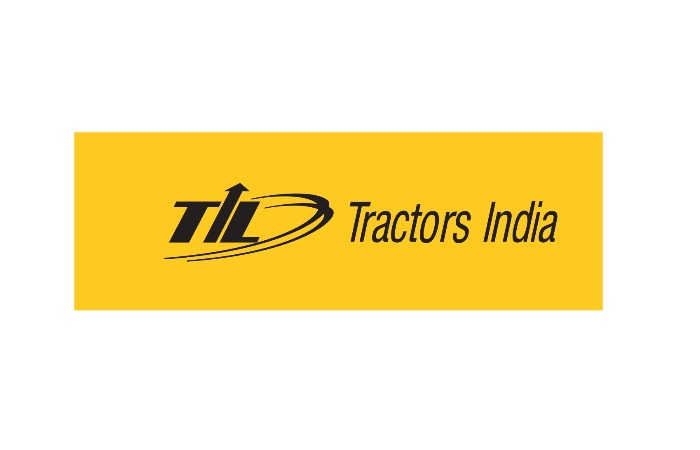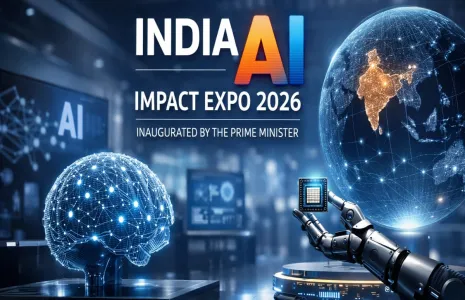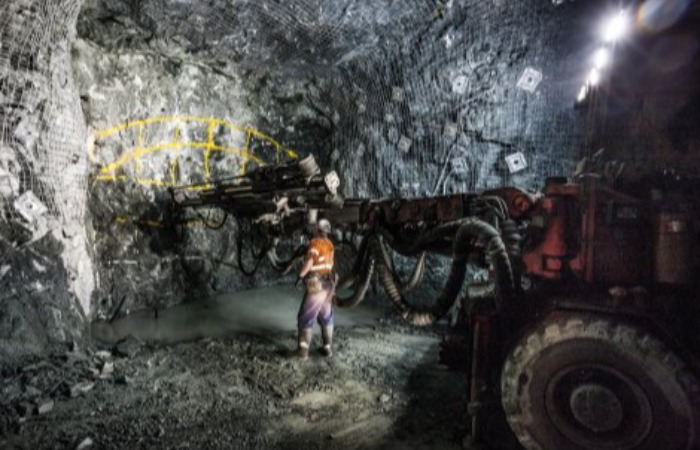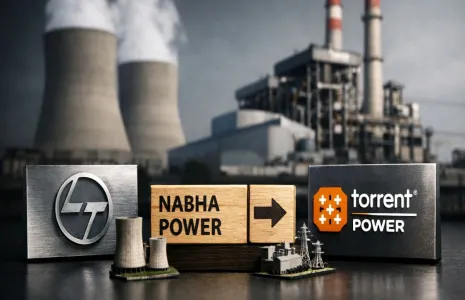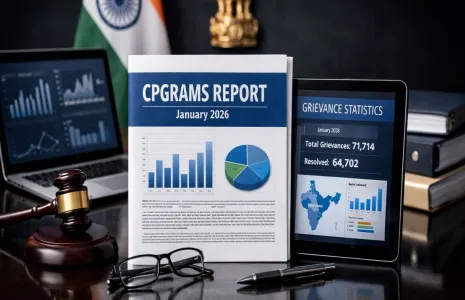Schedule a Call Back
Setting Benchmarks
2019-04-01
Here?s a company at the vanguard of infrastructure development! Part of India?s leading engineering and construction conglomerate Shapoorji Pallonji Group, Afcons Infrastructure (Afcons) has a diverse experience of on-time execution of over 350 infrastructure projects across 22 countries. The company has successfully executed landmark projects in the areas of rail, metro, highways, bridges, tunnels, ports, industrial projects, hydropower and water works, and oil and gas.
What?s more, Afcons recently won the Most Innovative Knowledge Enterprise (MIKE) award?considered the Oscars in knowledge management?at the Global, Asia and India levels, making it the only infrastructure company in India to have won the coveted award three years in a row. ?We are looking at cementing our place in the world of knowledge enterprise,? says K Subramanian, Executive Vice-Chairman, Afcons Infrastructure, adding that the company has one of the most advanced knowledge management processes among infrastructure companies in India. ?We have made significant investment in this regard and it has started yielding results.? (Read the Chief Knowledge Officer?s interview on Page xx.)
Operational excellence
Over decades, Afcons has constructed several engineering marvels in some of the most hostile geographies, including valleys, through mountains, at terrifying heights, across flooded rivers, over live railway tracks, and even over the sea. ?We pride ourselves on successfully executing complex infrastructure projects anywhere in India and abroad,? says Subramanian.
Today, with its exciting project portfolio and expansion in newer geographies, its focus will be on innovation and engineering excellence in all its projects. ?We will continue to strengthen our existing knowledge management practices,? shares Subramanian. ?And, in whatever we do, operational excellence will always be our competitive differentiator.?
Delivery-focused culture
Afcons has earned the reputation of being an extreme engineering and construction company, having executed some remarkably challenging projects (see more on Page xx).
?Executing such complex and technologically challenging projects with client satisfaction have become the ?new normal? for us,? say Subramanian. ?We have delivered several first-of-their-kind projects in India and abroad. For such projects, we hire the best experts from across the globe. For example, we had experts over 14 nationalities working with us for our Chennai Metro project.?
One key strategy is to take utmost care in selecting the right jobs. Infrastructure projects carry such a high level of risk for the contractor that even one wrong project can undo the good work done by the entire organisation. Thus, Afcons has developed in-house frameworks and processes for selecting or filtering projects. For instance, it has a project selection decision matrix that helps decide which projects to bid for in a particular business unit. It also has a robust risk-assessment process in place, which helps identify risks well in advance.
?A delivery-focused culture is in the DNA of Afcons,? adds Subramanian. ?And over time, we have developed many unique processes like an operational excellence framework that helps us deliver challenging projects across sectors and geographies.?
Technology as backbone
According to Subramanian, technology forms the backbone of the company?s excellence in project delivery. ?We regularly scout for newer technologies and develop them in house.? The company owns several sophisticated equipment such as tunnel boring machines (TBMs), road-header machines, vibro hammers, launching girders, multiple jack ups and marine barges, among others.
Over the years, Afcons has developed a strong internal team of design, equipment and method experts and has a panel of over 500 independent national and international experts. It also works with many start-ups in the design and engineering space to continue its innovation drive.
What?s more, the company?s strategic equipment fleet is worth nearly $ 300 million and it has two workshops in Delhi and Nagpur for maintenance and innovation. In terms of software, all its processes are mapped on SAP for project monitoring.
First-time right!
Afcons has laid out a strategic goal of achieving more than 30 per cent turnover from overseas projects. ?Our teams regularly scan various geographies, clients and sectors to create a rich pool of potential projects,? reveals Subramanian. ?From this pool, we identify focused projects based on our strategy and project selection decision matrix.?
?Typical of Afcons, we follow the mantra of ?first-time-right?,? he adds. For instance, the company entered the offshore business with a process platform project for ONGC in 2009. Conventionally, companies enter offshore business with anything other than process platforms?the ICP-R process platform is probably the only offshore platform in the world to be executed by an entrant into the oil and gas sector in its first attempt!
Similarly, Afcons entered the irrigation sector in 2016. In its first project for the Kaleshwaram Lift Irrigation Scheme (KLIS), it not only created multiple milestones but completed construction of Annaram Barrage before time with full client satisfaction.
Well equipped
The infrastructure giant also deploys a competent Construction Plant & Equipment (CPE) department, which has exhaustive experience in procuring, operating and maintaining equipment, to manage its procurement and other processes. Further, the company has laid down parameters for its suppliers. It has also done standardisation of manufacturer for a particular class of equipment, which helps reduce inventory carrying costs and develop a workforce with proper technical knowhow.
Notably, Afcons is among the few Indian companies to own seven state-of-the-art TBMs and has the highest inventory capability of port-building equipment. It is also unique when it comes to building self-elevating platforms. Moreover, it is building marine equipment to augment its breakwater construction. One of the fleet members will be the largest modular crane barge in the country.
?A lot of our efficiency is backed by owning strategic equipment and operating at high availability and efficiency,? says Subramanian. ?Our CPE team knows every aspect of our machines and this is what makes us tick.?
Safety and training first
The company has not only worked with many top-notch clients known for safety practices, domestically and internationally, but has delivered incident-free projects. ?We have received many international HSE awards and are certified for ISO 45001-2018 (Occupational Health & Safety Management Systems),? says Subramanian. ?We are the first such organisation to be certified to OHSMS based on the ISO 45001:2018 standards for the defined scope of certification in the construction or infrastructure industrial sector.?
Further, Afcons is committed to zero accidents. ?We have started training all the line managers, not just HSE executives, on world-class HSE practices by partnering with DuPont,? shares Subramanian. ?HSE induction and permit to work are mandatory at all sites. Teams carry out regular internal audits and ?lessons-learnt? sessions to prevent recurrence.?
Training and development programmes for employees are conducted at all sites and the head office throughout the year. ?We are probably the first Indian infrastructure company to implement in-house, technical e-learning solutions,? says Subramanian. ?Afcons has developed a dedicated knowledge management portal, GNOSIS, in house.? Its significant investment in learning and development is visible from the fact that it has crossed the global training benchmark of four man days per employee per year.
Global strength
Notably, 20-25 per cent of the construction conglomerate?s revenue has consistently come from overseas markets over the past few years. ?We were one of the few Indian companies to have de-risked ourselves from the Indian market even when there were ample opportunities at home,? highlights Subramanian. A consistent CAGR of 20 per cent, in good or bad times, can be called an indicator of growth. Since 2002, Afcons? average order size has increased from less than Rs 500 million to over Rs 10 billion, i.e. more than 20x increase.
At present, it is executing over 20 projects across 14 countries spread across Africa, the Middle East and neighbouring countries. Subramanian believes Africa will continue to remain a bright spot for the firm.
2019-2020 highlights
The construction giant has always targeted growth in profitability rather than an increase in the topline or order book. ?We became a billion-dollar organisation in FY2016-17 and are aiming for a $ 2-billion turnover by FY2021-22,? avers Subramanian. Afcons will continue to concentrate on several high-value and important projects for nation-building, such as India?s first high-speed rail project, the Mumbai-Ahmedabad HSR, river-linking projects, etc.
That said, domestically, the company expects project procurement to remain muted in Q1 FY2020 on account of the general elections, but expects it to pick up momentum afterwards. Subramanian points to most industry challenges being related to the external market scenario rather than internal constraints: aversion by banks to the infrastructure sector, project money due to contractors stuck in arbitration for long periods with government clients and non-availability of requisite XXXX. ?We are seeing a reversal of trend in the construction sector,? says Subramanian. ?The ecosystem is again getting increasingly restrictive. Contract conditions are becoming unfavourable and more risks are getting passed on to the EPC partners. However, we will engage proactively with the Government and industry forums to eliminate the toxic conditions and improve the ecosystem for Afcons and the construction sector at large.?
Ahead of the curve, as always!
- SERAPHINA D?SOUZA
?We are looking at augmented reality to enhance the user learning experience.?
- Rudolph D?Souza, Chief Knowledge Officer, Afcons Infrastructure
We are in the midst of a knowledge economy. And the key value is being produced not by the physical assets we possess, but by our people and the application of their intellect, remarks Rudolph D?Souza, Chief Knowledge Officer, Afcons Infrastructure, as he shares more on the company?s Most Innovative Knowledge Enterprise (MIKE) Award 2018 and more?.
How does it feel being the only infrastructure company in India to have won the coveted MIKE award three years in succession?
The MIKE Award 2018 (after two consecutive MAKE Awards in 2016 and 2017) is an indication that Afcons is on track to achieve its vision to be a knowledge enterprise. It is a recognition of the calibre of all Afconians. In an industry notorious for cost and time overruns, Afcons has an avowed intent to execute projects before time, within budget, and with highest customer satisfaction. This is where knowledge sharing from one project to another, from one activity to another, can help reduce time cycles, increase productivity and avoid reinventing the wheel. The MIKE Award, in many ways, recognises that we have made significant progress in this regard.
What puts Afcons on top of the knowledge management space?
One reason is that the management of Afcons has a clearly articulated mission to become a ?knowledge enterprise?, which is unique in the infrastructure sector. We are evolving from ?excellence in execution? to a ?knowledge enterprise?. The Knowledge Services Group (KSG) is tasked with the responsibility for identifying, codifying, sharing and leveraging the vital knowledge capital produced.
What are the initiatives, processes, strategies and systems that help sustain knowledge management?
Extreme engineering and construction is a way of life at Afcons. We strive to achieve projects before time, within budget, and with highest customer satisfaction.
Before the commencement of a major activity, learnings from previous projects are shared, methods are discussed and debated, and everyone is brought on the same page. During an activity, learnings are captured on an ongoing basis. They are uploaded on the knowledge management portal. After a major activity or project, learnings are captured and uploaded on the portal for the next project to learn from. This is a robust and proven knowledge management model that has now become part of the standard processes in Afcons.
Our approach is multidimensional. Our people participate in industry events and forums. We connect with the best available experts and academic institutions globally. We leverage the knowledge of our vendors and suppliers. We send our people for in-depth training. Our JV partners are an important source for knowledge transfer. And we are open to recruiting experienced talent for niche areas or where we intend to grow quickly. Knowledge management processes are built around the ?learn before, learn during and learn after? model.
What is the company?s focus on technology to enhance knowledge sharing and creation in the infrastructure space?
People are at the heart of all we do. We, however, acknowledge the significant role that appropriate technology plays in the success of an organisation like ours.
We use SAP for business processes, DMS for document management and a customised knowledge portal called GNOSIS for knowledge management. GNOSIS implies experienced knowledge. The ?learn before, learn during and learn after? model is built around the GNOSIS portal. We have stored knowledge on the portal domain-wise.
There is interactivity wherein a user can ask a question to an ?expert? and receive a direct response, which can then become standard knowledge for others. Importantly, the portal has been developed in house. Globally, there is no other infrastructure company that has developed its knowledge management portal through an in-house team. We are in the process of incorporating emerging technologies into the next version of the portal like auto suggestion, analytics and AI. We are also looking at augmented reality to enhance user learning experience.
What about efforts undertaken that typically focus on organisational objectives?
Knowledge management can be a ?nice-to-have? function or it can be a ?strategic? function that aligns with business goals. At Afcons, the KSG is the integration of the Knowledge Management Team and the Technical Training Team. The overall objective of KSG is to build organisation capacity, develop people capability and enhance knowledge capital.
- Organisation capacity: KSG ensures that learnings from an activity or project are transferred to a project executing a similar activity. We have well-defined knowledge processes for this. The ultimate goal is to execute a project before time, within budget, and with highest customer satisfaction.
- People capability: Weekly classrooms at site where learnings are downloaded and peopled are trained, coupled with access to in-house developed ?e-learning? modules, ensure that capability building is fast-tracked and highly visible.
- Knowledge capital: The GNOSIS portal is one of the finest collections of domain knowledge in this sector. It contains not just documents but actual lessons learnt, podcasts of experts, animations, success stories, infographics (example of tacit to explicit knowledge) and literally anything an engineer requires.
KSG believes that only by aligning with business goals can the function continue to be of ?strategic? importance.
More Accolades
Afcons is the first Indian infrastructure company to be certified as a ?Great Place to Work?. ?Our scores are far better than the domestic infrastructure industry benchmark in all parameters because of our people management policies.,? says K Subramanian, Executive Vice-Chairman, Afcons Infrastructure, with pride. ?Therefore, we are mostly successful in attracting the right talent as well as retaining our employees, which is reflected in our low attrition rates compared to the industry benchmark.?
What?s more, a recent Engineering News-Record (ENR) survey has also ranked Afcons the 22nd best company globally in bridge construction?a recognition of its ability to execute truly complex bridge projects anywhere in the world (read more in the Cover Story on Page xx).
Most Challenging Projects
- India?s longest jetty and largest container terminal in a record time of two years at Jawaharlal Nehru Port, Mumbai.
- India?s first underwater metro tunnels in a record time of just 67 days in Kolkata.
- Chennai Central Metro Station, one of Asia?s largest underground metro stations.
- Most part of the six-lane, 120-km, access-controlled Agra-Lucknow Expressway 14 months ahead of schedule.
- Process platform for ONGC in western offshore using the float-over technology on time.
- West Africa?s fastest multifacility port, in Gabon, in 18 months.
- Completed the Annaram Barrage, one of three barrages in the Kaleshwaram Lift Irrigation Scheme project, well before time.
- Is constructing the Rohtang Pass Highway tunnel in Himachal Pradesh, which will be the world?s longest motorable tunnel at 3,000 m above sea level upon completion.
- Also coming up is Chenab Rail Bridge, in Jammu & Kashmir, which will be the tallest single-arch railway bridge in the world.
Technology Innovations
- Concrete pumping for the Vallarpadam Rail Bridge project for a stretch of 2.1 km, a national record.
- In-house manufacturing of the jack-up barge.
- The world?s tallest cable crane set-up for Chenab Railway Bridge project, which is perhaps a record????.
- Mobilising the world?s third-largest Hermod barge to achieve offshore installation (of the ICP-R Process Platform) at the shortest time in western offshore.
- Adoption of float-over technology for the HRD Process Platform.
- Using overcut method to construct D-wall for the first time in India, in the Chennai Metro.
- For the first time, using reverse circulation drilling (RCD) on land with efficient management of water circulation for Chennai Metro.
- Tunnel-boring record by constructing 39 rings (55 m) with a single TBM in a day for Chennai Metro.
Fact Sheet
- Year of establishment: 1959
- Top management: Shapoor Pallonji Mistry, Chairman; K Subramanian, Executive Vice-Chairman; S Paramasivan, Managing Director; Giridhar Rajagopalan, Executive Director (Technical); Akhil Kumar Gupta, Executive Director (Operations)
- Segments of operations: Marine and industrial; urban infrastructure; surface transport; hydro and underground; oil and gas
- Regions of operations: Asia ? India, Bangladesh, Bhutan, Kazakhstan, Indonesia, Sri Lanka; Middle East ? Bahrain, KSA, Oman, Jordon, Kuwait, UAE, Yemen; Africa ? Gabon, Ghana, Guinea, Liberia, Madagascar, Mauritius, Mauritania, Mozambique, Tanzania, Zambia, Ivory Coast.
- No. of employees: 2,925
- No. of completed projects: 350+
- No. of ongoing projects: 51
- Landmark projects executed in the past three years: Chennai Metro; Kolkata Metro underwater tunnelling; Inland Waterways Terminal, Varanasi; Ram Jhula ? Cable-Stayed Bridge, Nagpur; Kandla Port; New Owendo International Port, Gabon; Rohtang Tunnel breakthrough; Bharat Mumbai Container Terminals, JNPT.
- Construction equipment owned: Fleet worth over $ 300 million
- Turnover: Rs 62.41 billion (as in December 2018)
- Order book: Rs 352.11 billion (as in December 2018).


Subscribe Now
Subscribe to our Newsletter & Stay updated
RECENT POSTS
Popular Tags
Folliow us

